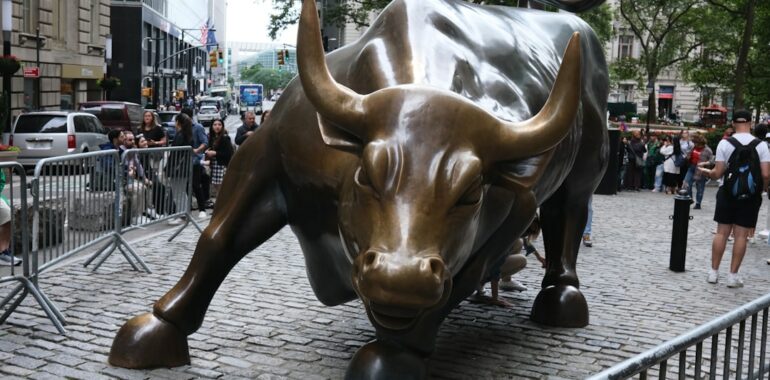Stock Short Squeeze Explained: Joseph Saveri Law Firm’s Antitrust Litigation

Discover how the Joseph Saveri Law Firm is addressing stock market manipulation through antitrust litigation in cases involving stock short squeezes like the GameStop saga.
Introduction
The stock market is a complex ecosystem influenced by various factors, including investor behavior, regulatory policies, and institutional strategies. One phenomenon that has garnered significant attention in recent years is the short squeeze, particularly highlighted by the GameStop (GME) incident. This event not only showcased the power dynamics between retail investors and hedge funds but also raised critical questions about stock market manipulation. The Joseph Saveri Law Firm has taken a proactive stance in combating such manipulations through antitrust litigation, aiming to protect the interests of retail investors and ensure a fair trading environment.
Understanding Short Squeezes
A short squeeze occurs when a stock’s price rises rapidly, forcing investors who have shorted the stock to buy shares to cover their positions, further driving up the price. This scenario can create a feedback loop, exacerbating the stock’s volatility and leading to significant financial repercussions for those involved in short selling.
The Mechanics of a Short Squeeze
-
Short Selling Explained: Short selling involves borrowing shares of a stock and selling them with the expectation that the stock’s price will decline. The short seller plans to buy back the shares at a lower price, return them to the lender, and pocket the difference as profit.
-
Triggering the Squeeze: When the stock price unexpectedly rises, short sellers may face margin calls, requiring them to deposit additional funds or close their positions by buying back the shares at higher prices.
-
Compounding the Effect: As short sellers scramble to cover their positions, the increased demand for the stock can cause its price to surge even further, intensifying the squeeze.
The GameStop Saga: A Case Study
The GameStop short squeeze in early 2021 became a landmark event in the financial markets, illustrating the potential clash between retail investors and institutional entities.
Events Leading Up to the Squeeze
-
Retail Investors Mobilize: Communities on platforms like Reddit’s r/wallstreetbets rallied to purchase GameStop shares, driving up the stock price.
-
Hedge Funds Under Pressure: Hedge funds holding substantial short positions in GameStop faced mounting losses as the stock price soared, leading to massive cover-ups of their shorts.
Impact on the Market
-
Volatility and Uncertainty: The sharp rise in GameStop’s stock price created unprecedented market volatility, affecting not just the involved parties but the broader financial landscape.
-
Public and Regulatory Scrutiny: The events sparked debates about market fairness, transparency, and the role of trading platforms, bringing issues of stock market manipulation to the forefront.
Role of Joseph Saveri Law Firm in Antitrust Litigation
In response to the GameStop short squeeze, the Joseph Saveri Law Firm has spearheaded antitrust litigation efforts to address alleged stock market manipulation by major financial institutions and trading platforms.
Legal Actions Taken
-
Cheng v. Ally Financial Inc.: This case marked the beginning of formal complaints against entities involved in restrictive trading practices during the short squeeze.
-
Consolidated Class-Action Lawsuit: Multiple cases were merged into a class-action lawsuit, alleging that defendants conspired to manipulate the market by limiting retail investors’ trading capabilities.
Objectives of the Litigation
-
Protecting Retail Investors: The primary goal is to safeguard the rights of individual investors against unfair practices that disadvantage them in the stock market.
-
Promoting Market Transparency: By challenging alleged manipulative actions, the firm aims to enhance transparency and fairness within the trading environment.
Allegations of Stock Market Manipulation
The core of the litigation involves accusations that major brokerage firms and financial institutions engaged in stock market manipulation to protect their interests at the expense of retail investors.
Key Allegations
-
Coordinated Trading Restrictions: Defendants are accused of collectively restricting the buying of certain stocks, thereby facilitating a short squeeze that benefited large financial players.
-
Conflict of Interest: Evidence suggests that trading platforms like Robinhood may have had undisclosed relationships with hedge funds, influencing their decision to halt trading during critical periods.
-
Anticompetitive Schemes: The lawsuit alleges that the defendants conspired to create barriers preventing retail investors from participating freely in the market, undermining the principles of open and fair trading.
Supporting Evidence
-
Communication Revelations: Emails and communications between executives at brokerage firms and financial institutions have been scrutinized as potential proof of coordinated efforts to manipulate the market.
-
Market Impact Analysis: Detailed analyses of trading patterns during the short squeeze period highlight anomalies that suggest external manipulation.
Implications for Retail Investors and the Future of the Stock Market
The outcome of the Joseph Saveri Law Firm’s antitrust litigation could have far-reaching consequences for the stock market and its participants.
Empowering Retail Investors
Successful litigation could establish stronger protections for individual investors, ensuring they have equal access and opportunities in the market, thus reducing the risk of manipulation by larger financial entities.
Regulatory Reforms
The case may prompt regulatory bodies to implement stricter oversight and more transparent trading practices, aiming to prevent future instances of stock market manipulation and ensure a more equitable trading environment.
Market Dynamics
A shift towards greater transparency and fairness could alter the dynamics of stock trading, encouraging more retail participation and fostering a healthier financial ecosystem.
Conclusion
The GameStop short squeeze highlighted significant vulnerabilities and power imbalances within the stock market, bringing issues of stock market manipulation to the forefront. The Joseph Saveri Law Firm’s antitrust litigation represents a pivotal effort to address these challenges, advocating for the rights of retail investors and striving to maintain the integrity of the financial markets. As the legal proceedings unfold, the lessons learned could pave the way for a more transparent and equitable trading environment, benefiting investors and the market as a whole.
Ready to take a stand against stock market manipulation? Join the community at Superstonk.io and stay informed on the latest developments.




